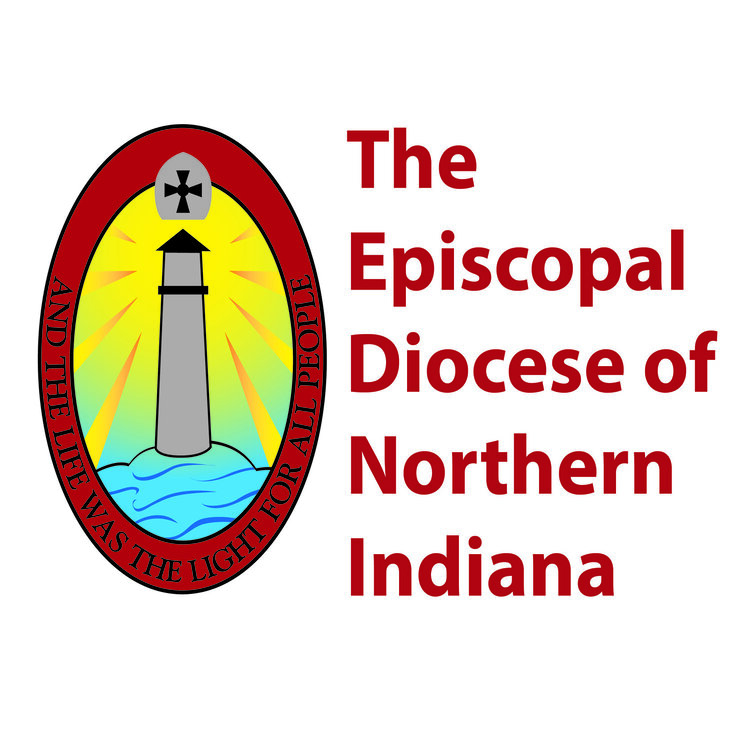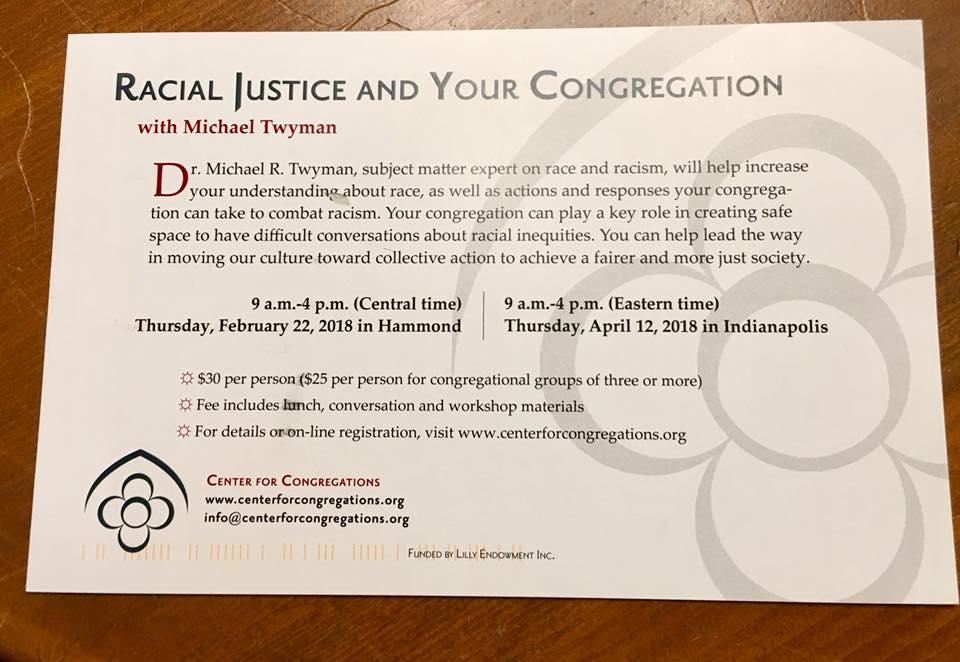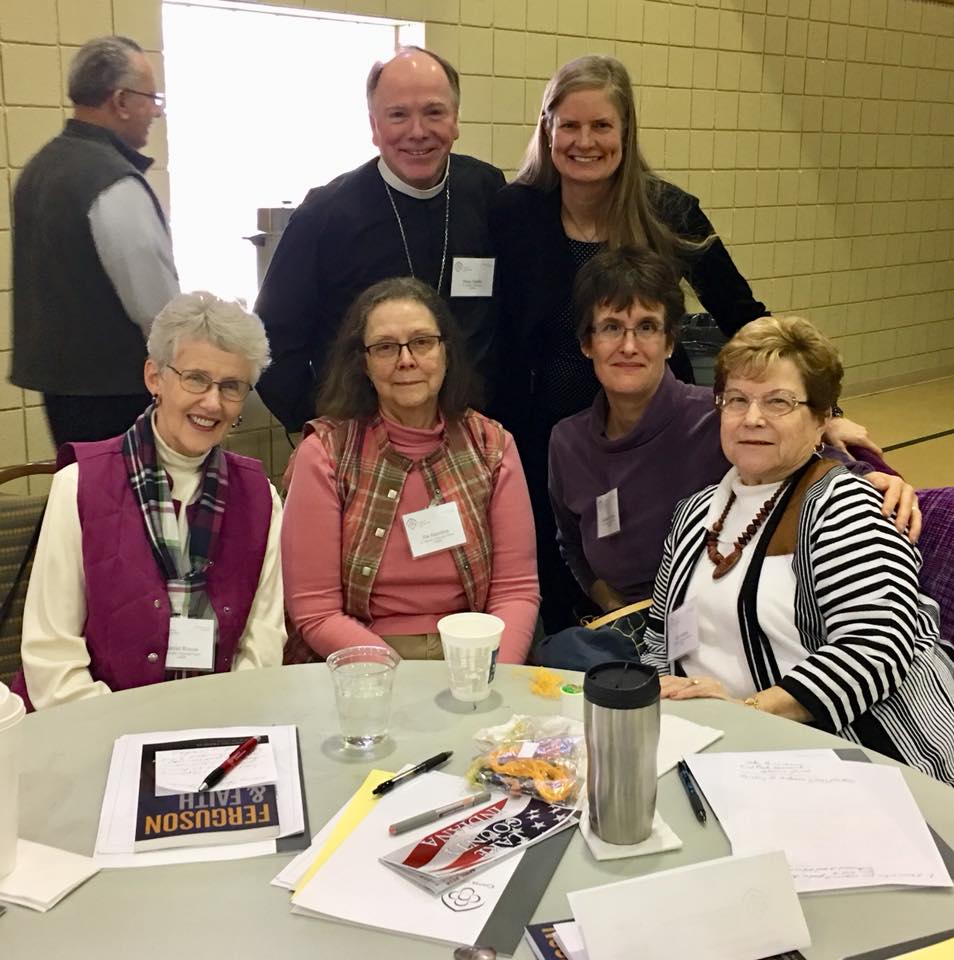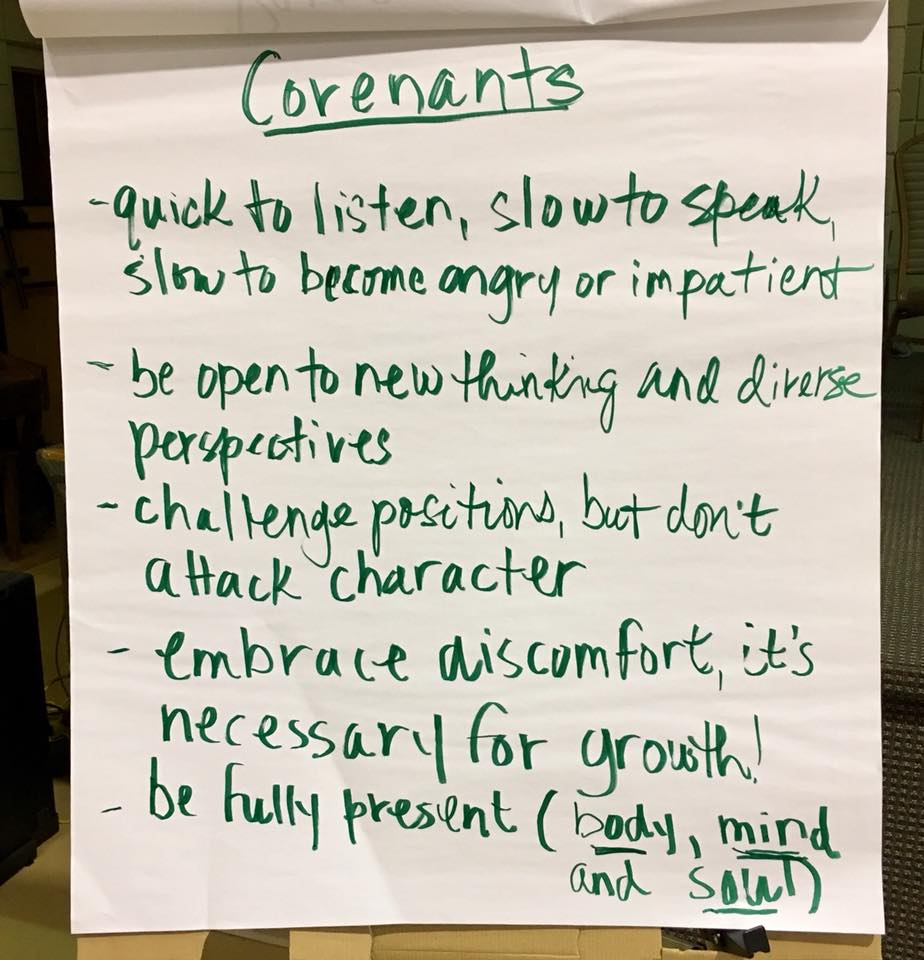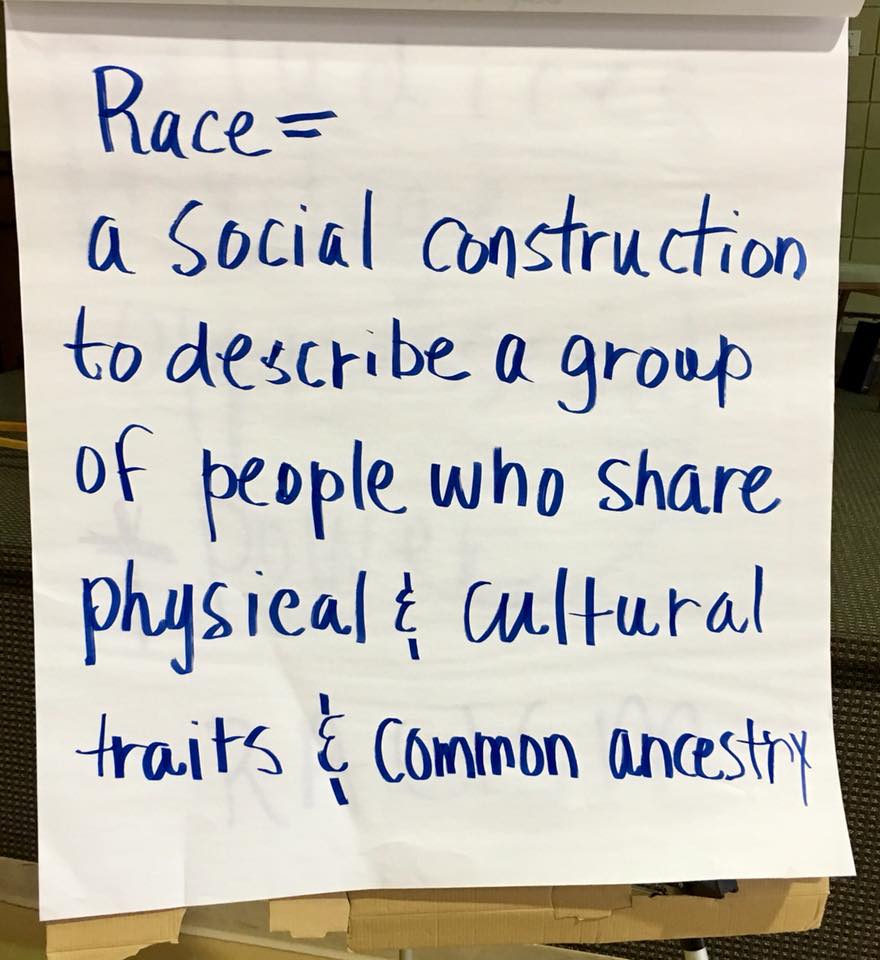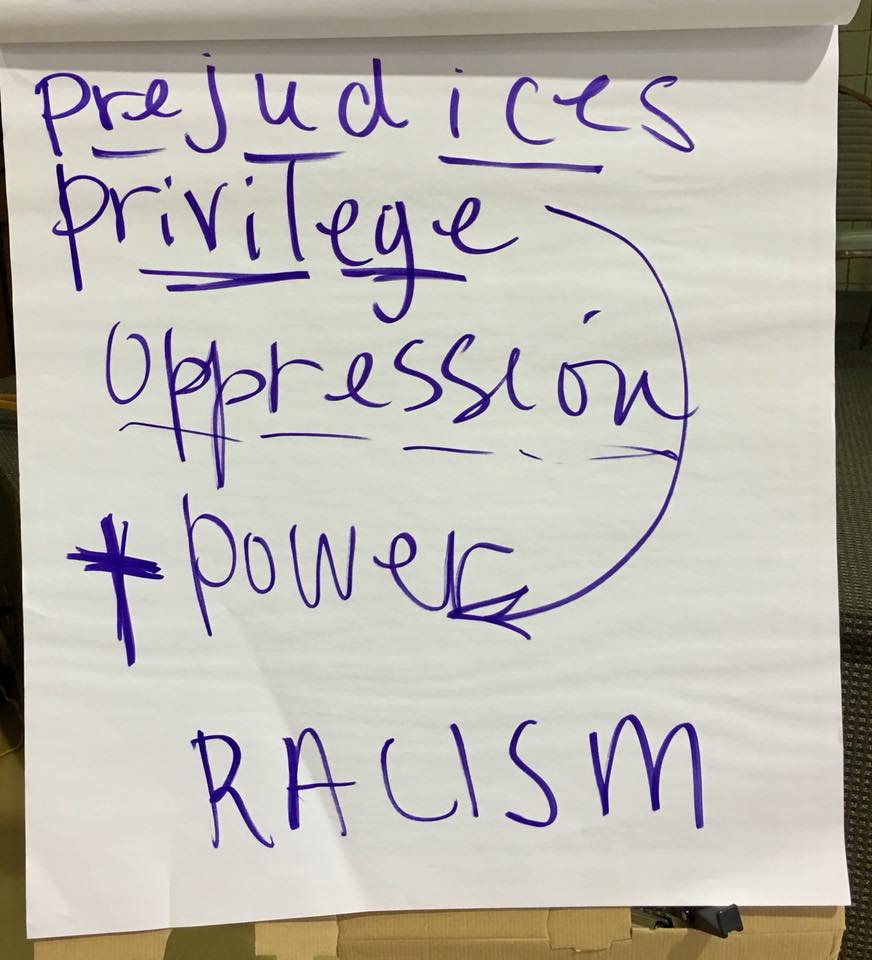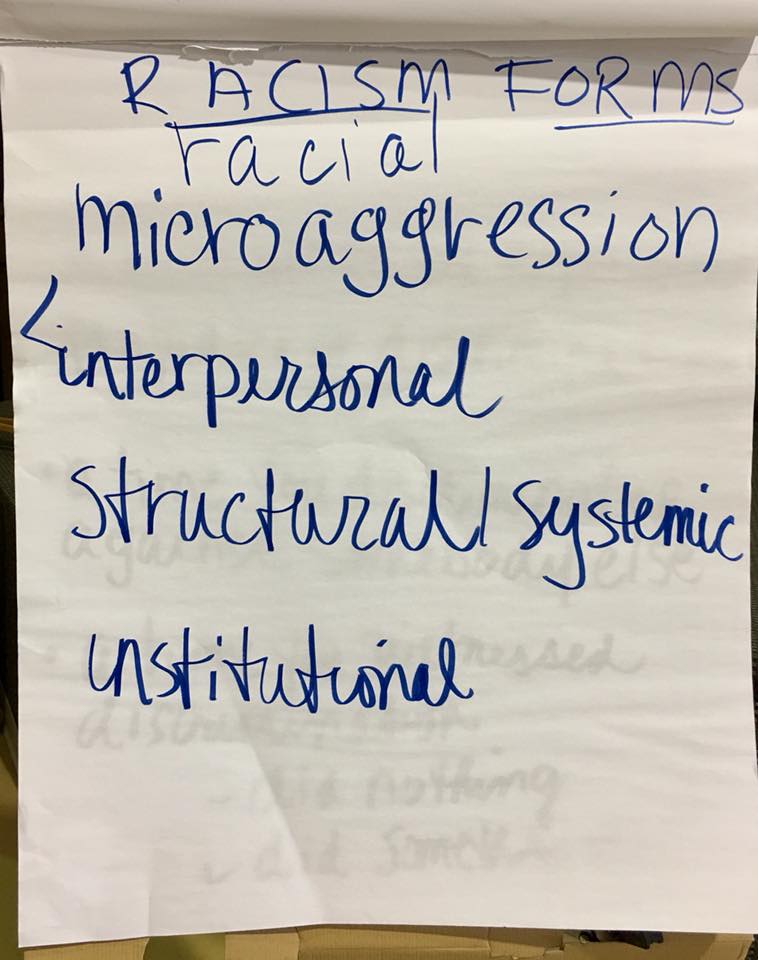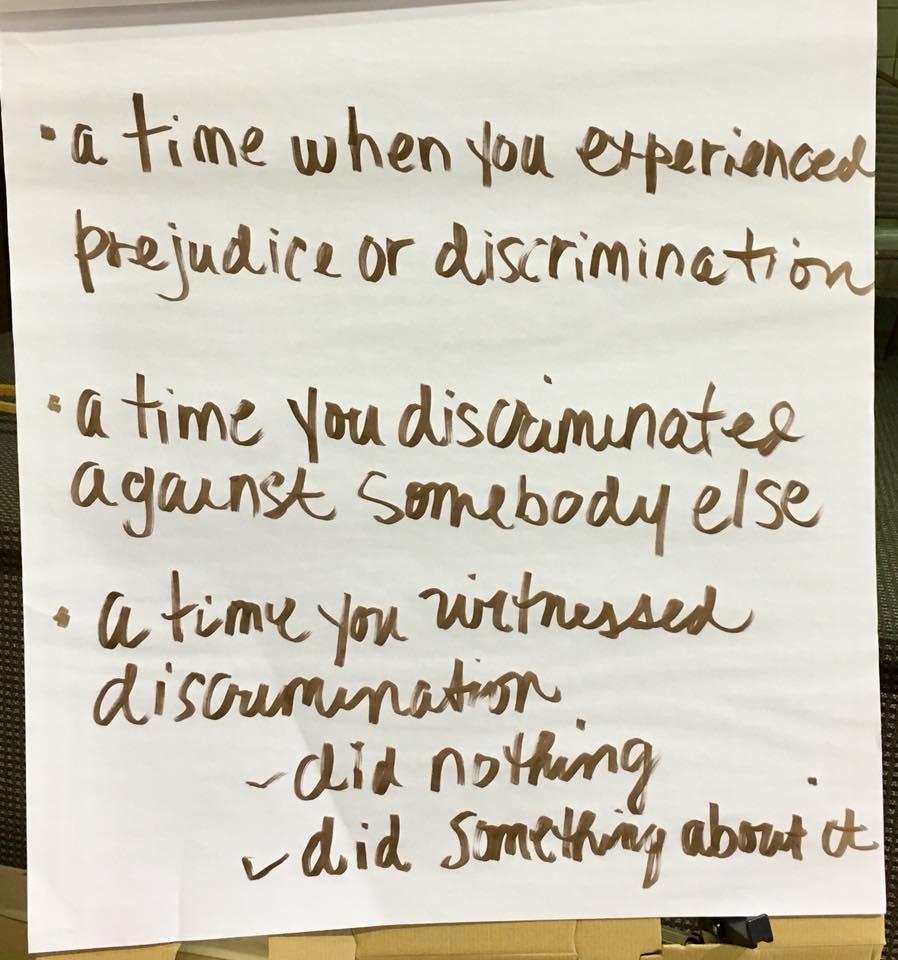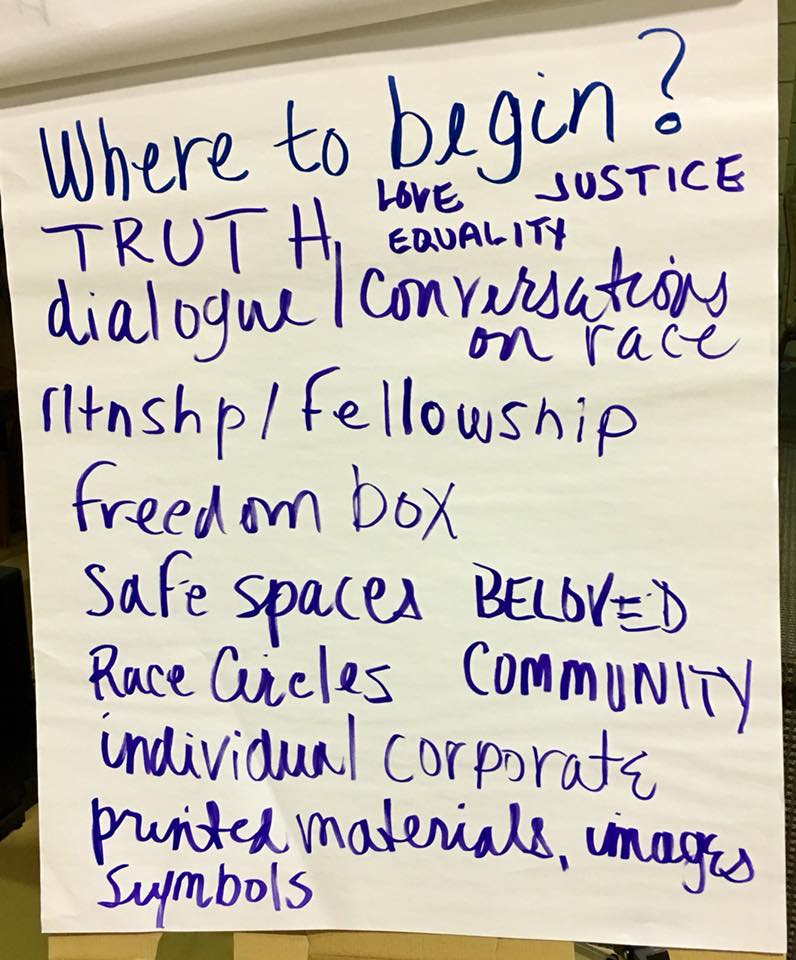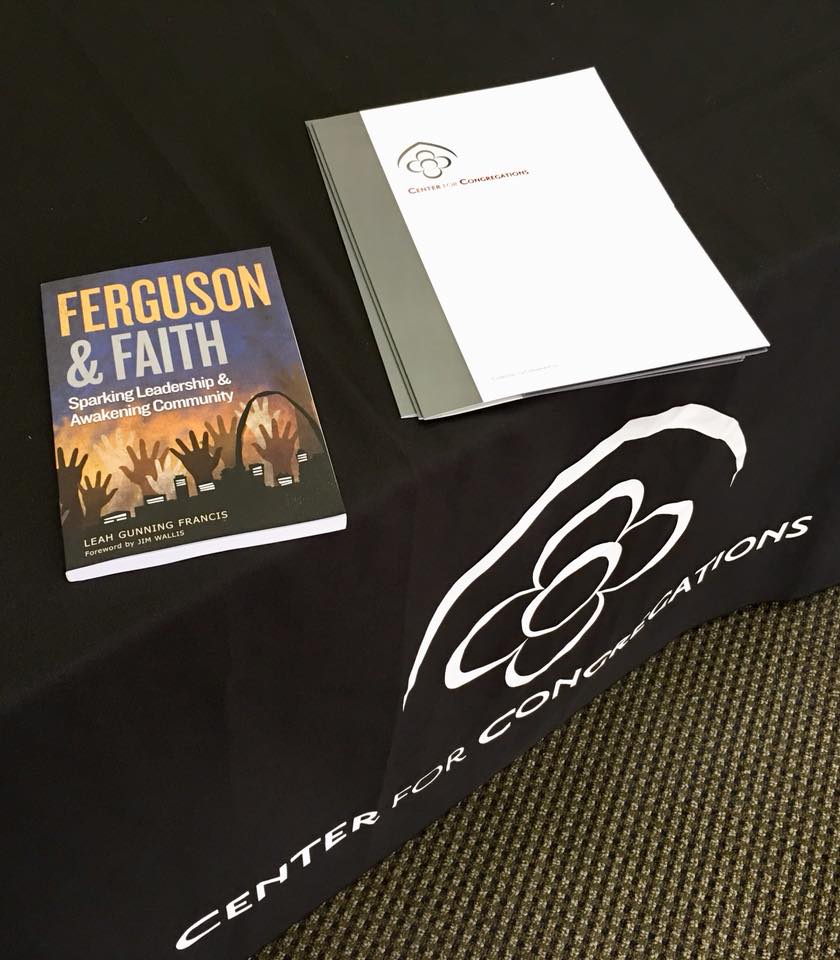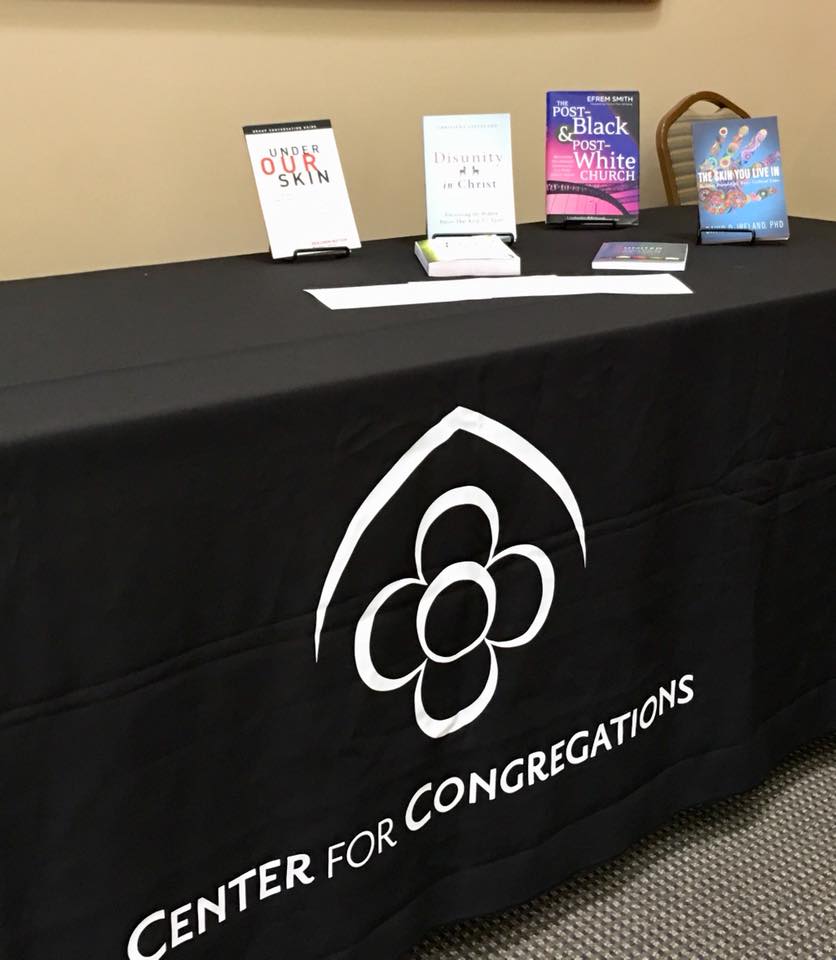What does racial reconciliation look like in a small midwestern city? This is the question we, at Gethsemane Episcopal Church in Marion, Indiana have been grappling with for the past ten years. The priorities of Presiding Bishop Michael Curry and the current racial situation in the United States add urgency to our situation.
We work under the basic premise that marginalized and oppressed groups are the leaders and experts when issues of racism arise. Gethsemane is primarily an historically white congregation.
About 20% of our population in Marion are people of color, and many of the African-American families have deep historic roots in our community. While Indiana is technically a northern state and did not live under Jim Crow legislation during the 20th Century, racism has overshadowed much of its history. During the antebellum period, Marion served as a stop on the Underground Railroad, but in 1930, two young black men were publicly lynched in the Courthouse Square. The lasting scars of this event still provide a background for future events in town. In addition, adjacent communities were well known as Sundown Towns, at least until the 1950’s. Sundown Towns are communities where Black people were not allowed to be outside after sunset. Understanding the impact of historic trauma and acknowledging continuing implicit bias are clear goals of our church.
Gethsemane is a small but vital congregation. We are located between two small Christian liberal arts colleges and as such, have attracted a number of students and faculty who are unsatisfied with conservative Christian responses to social justice issues. Our priest, Father Warnock, has been involved in reconciliation ministries for over fifteen years and in 2016, our church officially became a member of the Community of the Cross of Nails. Over the years, we have held worthwhile reconciliation events, involving deep conversations on issues of the role of women, human sexuality, poverty and white privilege.
But the reality remains: years ago, when we reached out to a leading Black pastor to see if we could work together on issues of racial reconciliation, we were kindly but firmly told that he did not know if he could trust us. We understand that the lack of trust of the privileged by the oppressed is a realistic response.
Over the years, we have made intentional steps to become a reflective community on issues of race. We have had several book studies and discussion groups, looking at aspects of discrimination. We partnered with a local Black church to have shared monthly dinners to try to build relationships. We intermittently have supported rallies against racism. Two years ago, we did a day-long seminar, focusing on issues of white privilege, which was attended primarily by college students and members of our congregation. Our rector has consistently used the pulpit to address issues of racism head on. These have all been productive activities.
And yet, as we know that racism in the U.S. and in Marion is systemic and not just an issue that can be addressed through personal reflection and change, we have been stymied on how to go more deeply into these issues. (It should be noted that individual members have been deeply involved in political efforts over the past several years.)
During the past few months, two events have given us a chance to “walk the walk and not just talk the talk”. In April, a young Black man, who is acknowledged to have mental health problems, was arrested in Marion. He was, in fact, only partially clothed and did have outstanding warrants. However, he was videotaped being held down by five white officers, hit, and apparently not handled humanely. When his family and the Black Ministerial Association met with city officials, they were told only that investigations were ongoing, no details to be discussed. Our priest attended the first meeting with city officials and, as the only white clergy member present, was invited to participate in further meetings and negotiations. At this point, some mediation has been accomplished, though the outcomes are still not entirely clear for the community. Through standing with the Black community in this situation, our church was able to play some small role in the process of systemic change that may eventually lead to reconciliation through trust-building.
A few weeks later, the white president of our school board “liked” a racist meme on Facebook. When confronted, she apologized and some members of the white community were quick to say we should, as Christians, just forgive her mistake. Further research on her Facebook page, however, verified that she had a pattern of supporting anti-immigrant, anti-Muslim and racist posts. Again leaders of the Black community asked for her resignation. They were told that they were the only ones who had complained and that the problem had been resolved. However, as an elected official and still active member of the school board, we at Gethsemane again felt that action needed to be taken to support Christian values of equity. So at the ensuing public school board meeting, we were able to bring out a sizable number of members of our congregation to stand with the Black community. The member in question did soon resign and we are hopeful that this event gives Marion the prodding it needs to look more deeply at how these issues impact the lives of families and children in our community.
Kresha Warnock, pictured with a Croatian flag - celebrating after Croatia beat Russia in the World Cup
We, at Gethsemane, continue to struggle with our ongoing role as a reconciling parish. What is our role in terms of changing the hearts and minds of those in the white community whose knowledge and understanding of racism are limited, but whose action or lack of action often support discrimination and bias? None of us has been invited to speak at a royal wedding, but is it our first responsibility to speak out against injustice and racism as Bishop Michael Curry has done in this politically charged environment? We live in a time in which the impact of racism and other biases are more and more evident in both individual and policy actions in the U.S. and around the world. We can never do enough to support the oppressed, but how does our faith community and reconciliation team react? Is it ethical to support only individualistic, incremental change at at time when families are being torn apart and whole large groups of people are living in psychological and physical risk every day, in our country alone? What systemic changes is the faith community able to impact and what is our responsibility in that area? We will continue to struggle with these issues as we move forward.
Written by Kresha Warnock for the Cross of Nails Newsletter,
Member of Gethsemane Episcopal Church, Marion IN
